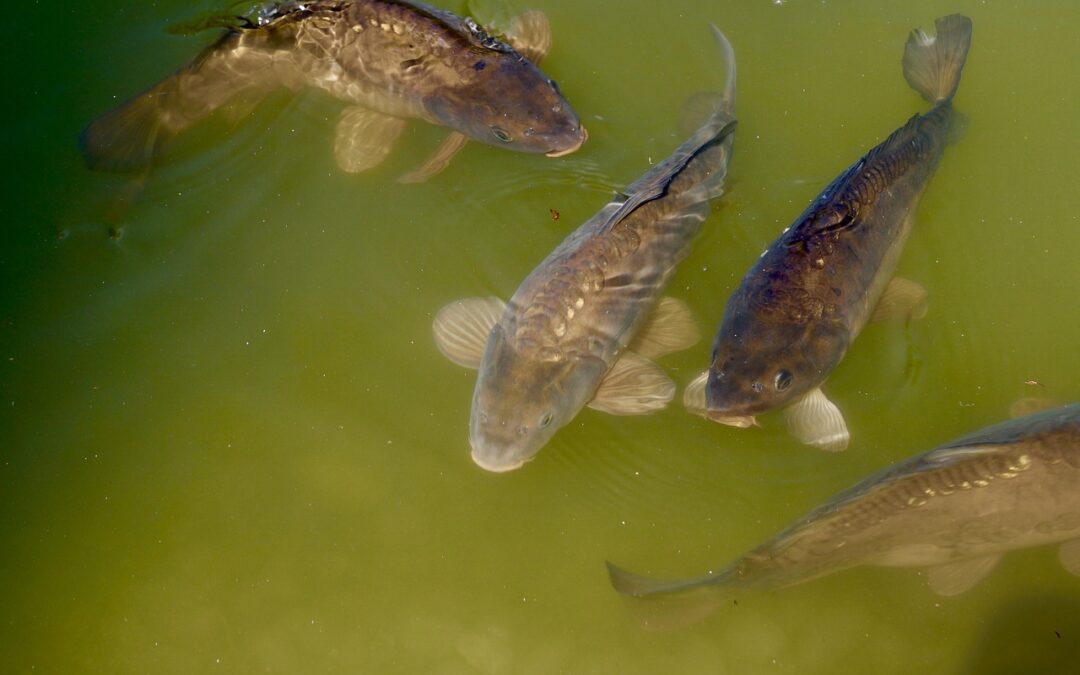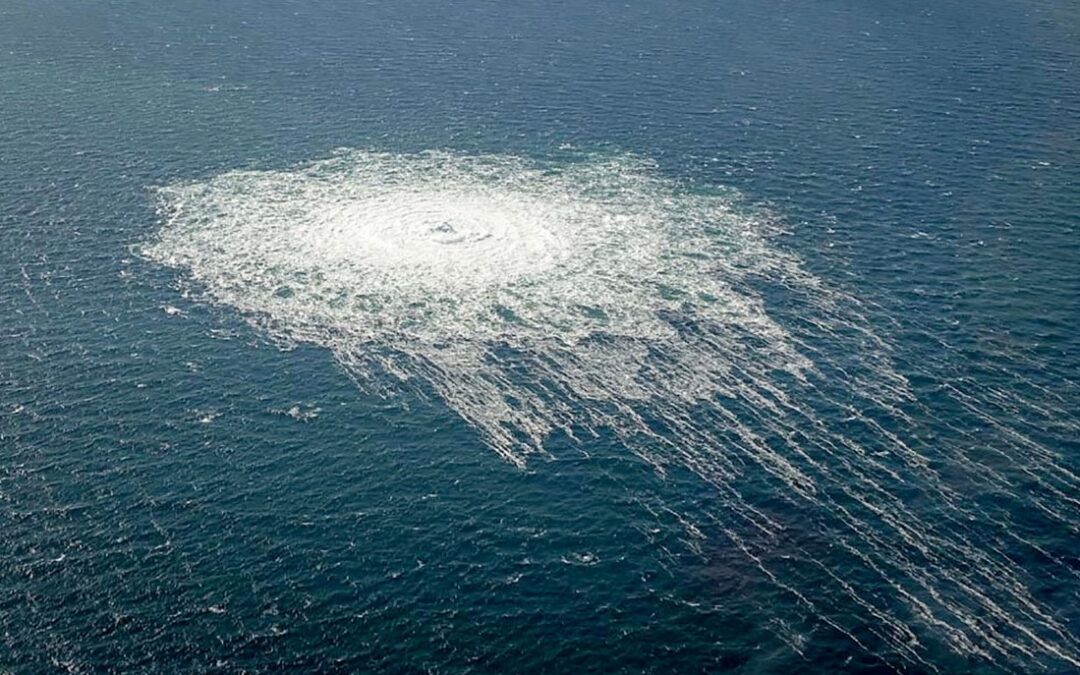Keep our news free from ads and paywalls by making a donation to support our work!

Notes from Poland is run by a small editorial team and is published by an independent, non-profit foundation that is funded through donations from our readers. We cannot do what we do without your support.
Prosecutors have filed an indictment against a Polish veterinarian and lecturer who, during classes with students, killed carp without stunning them first. She is accused of animal cruelty and exposing an animal to unnecessary pain, and could face up to three years in prison.
The case stirred controversy in Poland after a video taken by one of the students was made public in 2023 by animal welfare group Viva!.
“The indictment is mainly based on the opinion of a veterinary expert, who concluded that both the storage of these animals prior to their use and the deprivation of their lives without stunning them first exposed them to suffering and were carried out in an inhumane manner,” said Oliwia Bożek-Michalec, spokeswoman of the prosecutor’s office in Kraków.
‼️UWAGA! Materiał filmowy jest drastyczny‼️
Jest akt oskarżenia w głośnej sprawie zabijania karpi na Uniwersytecie Rolniczym w Krakowie! Czytaj do końca, bo ta sprawa ma wiele wątków!Hanna L., wykładowczyni, która podczas zajęć ze studentami zabijała karpie bez ogłuszenia,… pic.twitter.com/FVRQjViJw6
— Fundacja Viva! (@Fundacja_Viva) April 2, 2025
On Wednesday, Viva! shared on social media that prosecutors in Kraków had on 20 March filed an indictment against the lecturer. The group’s representatives will act as auxiliary prosecutors before the court.
The lecturer – who can be named only as Hanna L. under Polish privacy law – is accused of animal cruelty and exposing an animal to unnecessary pain, and could face up to three years in prison if found guilty.
Izabella Majewska, spokeswoman of the University of Agriculture in Kraków, where the incidents occured, refused to comment, saying that “this is only an indictment, there is no court verdict yet”.
The incidents occured when Hanna L. was conducting practical dissection classes for veterinary students at the university.
“I heard from the first group present at the class that the professor was killing fish, that she was butchering them. She was doing the same thing at ours,” Szymon Bałka, one of the students, told broadcaster Radio Kraków.
During one of the practicals in November 2022, Bałka took out his phone and recorded the lecturer handling the fish. The video shows her cutting the head off a carp with a knife. The fish vigorously moves its tail in the process, which it would not have done had it been stunned beforehand.
“The fish was struggling while its head was being cut,” Bałka recalled and claimed that the fish used “were definitely not stunned.” In the recording, another student can be heard asking whether the carp is suffering, which the professor audibly denies. Half an hour later, the fish – with a large wound – was still breathing, according to witnesses.
A court will rule on the case of a rescue dog that was adopted from a shelter in order to act as an organ donor for a purebred dog.
Animal rights groups hope the case can help prevent homeless animals from being used as a "source of spare parts" for pets https://t.co/3XSequlffh
— Notes from Poland 🇵🇱 (@notesfrompoland) March 1, 2024
The video was shared with Viva!, who publicised the case. As a result, the university rector initiated disciplinary proceedings against the lecturer “due to the high probability of an act inconsistent with the principles of ethics”, according to an official statement issued by the university.
“During this procedure, the lecturer was suspended. However, no irregularities in her behaviour were found, which is why she was reinstated,” Majewska told broadcaster TVN24. Hanna L. still works at the university at the time of writing.
Meanwhile, the student who documented the professor’s behaviour “failed one of the exams and was crossed off the student list” after the video was made public, according to Viva!.
A few months later, the administrative court in Kraków found that the student had in fact passed the exam and that the university had counted his exam points contrary to its own rules. However, the university appealed against the ruling and did not allow the student to catch up on the classes he had missed as a result of failing the exam.
A leading candidate in Poland’s presidential race – Sławomir Mentzen of the far-right Confederation party – has sparked debate by calling for all universities to charge students tuition fees.
His idea has been rejected by all his rivals from left to right https://t.co/kT23CmMubW
— Notes from Poland 🇵🇱 (@notesfrompoland) March 29, 2025
“He is likely to wait many years for a ruling from the Supreme Administrative Court [NSA],” Viva! wrote in a statement published on social media.
Both Polish and European law stipulate that carp cannot be killed without first being stunned. The practice of stunning the fish causes it to stop moving because the brain does not send any signals to the muscles.
Only during or after cutting the spinal cord can the fish move because of so-called spinal reflexes, Radosław Kowalski, professor at the Polish Academy of Sciences (PAN) in Olsztyn told Radio Kraków.
A humpback whale that got tangled in fishing nets in the Baltic Sea just off the coast of Poland has been freed after an unprecedented rescue operation https://t.co/7C4C52vWpS
— Notes from Poland 🇵🇱 (@notesfrompoland) February 27, 2025
The animal welfare group Viva! has previously advocated for banning the sale of live carp, a practice linked with the traditional consumption of the fish in Poland at Christmas.
Although the sale of live carp has not yet been completely banned, a 2024 poll by the Compassion in World Farming foundation found that almost 70% of people in Poland support outlawing the sale of live fish.

Notes from Poland is run by a small editorial team and published by an independent, non-profit foundation that is funded through donations from our readers. We cannot do what we do without your support.
Main image credit: Pixabay

Agata Pyka is an Assistant Editor at Notes from Poland. She specialises in Central and Eastern European affairs, cybersecurity, and investigative reporting. She holds a master’s degree in political communication from the University of Amsterdam, and her work has appeared in Euractiv, the Balkan Investigative Reporting Network (BIRN), and The European Correspondent, among others.



















